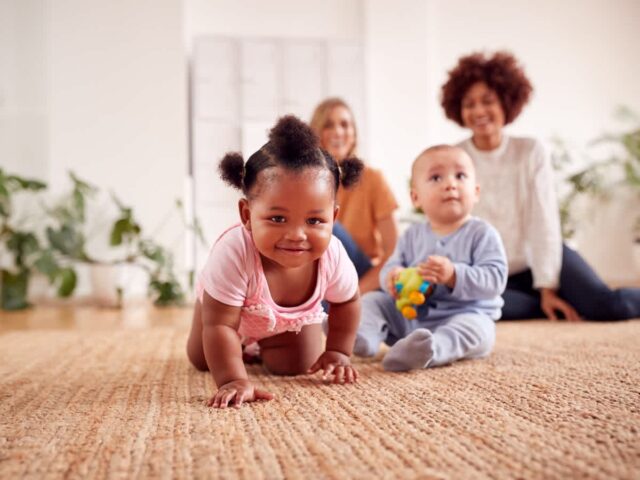This National Adoption Week (12-18 October), charity Adoption UK is urging members of the black community to step forward to become adoptive parents.
The charity says black children in care are waiting longer to be placed for adoption because there is a shortage of adopters from the black community. In a survey for Adoption UK’s recently published Adoption Barometer report, less than five percent of adoptive parents came from the black, Asian and minority ethnic (BAME) community.
National statistics reveal that black children are disproportionately represented in the care system. Figures from the Department for Education show that of the 78,150 children looked after at the end of 2019, 8% were of Black or Black British ethnicity. But just 3.7% (60) of the 3,570 looked after children who were adopted in England during 2019, were Black or Black British.
Olympian Tessa Sanderson CBE, an adoptive parent and ambassador for Adoption UK, said: “Eight years ago my husband Densign and I adopted our beautiful twins who have brought so much love and joy into our lives. We need more prospective adopters to come forward from our community as sadly black children still wait longer to be adopted. Of course, there are challenges but the love and care you can provide to a child can make such a difference and the joy of creating your special family is incredible.”
There are a number of specific barriers which can stop people considering adoption, including misconceptions about the type of person who can adopt, fear of the process being overly intrusive, or a mistrust of authority. Adoption UK is calling for improvements to the adoption assessment process, to ensure it is geared to meet BAME adopters’ needs.
Mike Rebeiro, Adoption UK’s Chair of Trustees, said: “As an adoptive parent of dual-heritage, I strongly believe that no child should be waiting in care because of the colour of their skin. Interracial adoption can hugely successful. But there are obvious benefits to placing a child, who is already wrestling with issues around their identity, with a family that looks like them and is well-placed to support their culture and heritage.”
Mr Rebeiro added: “Adoption can be challenging, and families will usually need support, but three-quarters of adoptive parents told us they would recommend adoption to others.”
The charity says the key to encouraging adopters to come forward is a guarantee that they will be well supported. The Adoption Barometer shows the difference the right support can make and calls for every family to have a support plan in place before their child comes to live with them.




